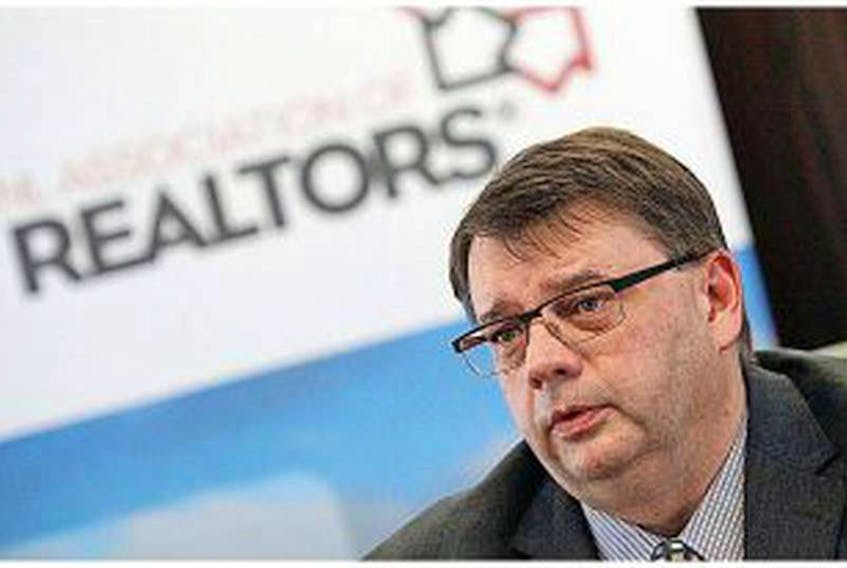Save for minor amendments, the province’s real estate trading act has remained largely unchanged since it was first adopted in 1965.
Just before Christmas, the province announced Service NL would initiate a review of the act and the real estate licensing regulations in an effort to modernize the outdated legislation.
That was welcome news to the Newfoundland and Labrador Association of Realtors (NLAR), which has made reform an advocacy priority for quite some time.
“They say if you put a frog in boiling water he’ll jump out. But if you put a frog in cold water and turn up the heat underneath it will eventually boil to death because it doesn’t notice the difference,” says NLAR CEO Bill Stirling.
“That’s very much what has happened. Our act was the frog in cold water and everything has heated up around it. The legislation hasn’t kept pace with where it’s needed to be.”
In anticipation of the review, the NLAR has held a series of public town hall meetings throughout the province this month to gather input from the public, its membership — which represents 95 per cent of real estate salespersons in the province — and industry stakeholders such as mortgage brokers, home inspectors and appraisers, lawyers and others.
The information will be used to inform the NLARs submission to the province.
Stirling says many of the topics of discussion were common throughout and very much in line with the questions the government is asking.
The input was a reflection of how much things have changed and it’s clear reform is not about what’s in the act, but what’s missing from it.
“What most people are concerned about is that the public is adequately protected with what’s in the act, that licensees are properly educated and are prepared when they come into the industry to be able to do their job and represent people the way they should be, and that there’s some commitment to professionalism and continuing education.”
On the subject of continuing education and professional development, Stirling says while members of the NLAR are required to engage in it, there’s nothing in the act that says a real estate agent has to do so.
“This day and age, I think every professional occupation has some level of required professional development every year, so that seems like a no-brainer that that’s something government should be looking at.”
Stirling says it’s an especially important subject because the role of a real estate agent has gone from being simply a “gatekeeper of information” on a property to being “path-finder, hand-holder and co-ordinator of the whole process” because there are so many services available to the industry and consumers that weren’t available as recently as 20 years ago.
“When our legislation was written there were no homes inspectors, no mortgage brokers, no professional photographers. There are a lot of these services that have come along that our act makes no mention of.”
The same goes for adhering to a code of ethics. NLAR members are held to one, but there’s no requirement from the province within the legislation.
Along the way, there were also discussions about a need to beef up educational requirements for potential agents and introduce mentorships for newcomers to the industry.
“Right now, you get a real estate licence, you are licensed to sell anything the first day you have your licence,” Stirling says.
Then there’s the issue of what is called double ending, where the agent represents both the buyer and the seller in a real estate transaction. It’s already banned in British Columbia.
“If you were to implement a ban on double ending, what does that do in rural and remote regions of the province where there are very few licensees that are familiar with the market and available to help people through a transaction?” Stirling says.
The NLAR also heard concerns about conflicts of interest within the industry.
“You can be licensed to be a real estate agent and also be a mortgage broker, and people find that’s a bit interesting. That’s because mortgage brokers didn’t exist when the act was written, so the Mortgage Brokers Act does not connect to the Real Estate Trading Act.”
The NLAR has two more forums in Labrador before the task force starts work on a submission to the government — this coming Monday at the Hotel North Two in Happy Valley-Goose Bay and Wednesday, Feb. 7 at the Two Seasons Inn in Labrador City. The format for both calls for an NLAR-members-only session from 1-4 p.m. followed by a public forum from 7-9 p.m. More information is available online at nlaropenhouse.ca.
For those unable to attend any of the forums in person, Stirling encourages people to fill out the government’s questionnaire on the survey, available online at engagenl.ca.
“The more traction they get, the more likely we are to see some of this stuff rectified going forward.”
Twitter: kennoliver79









